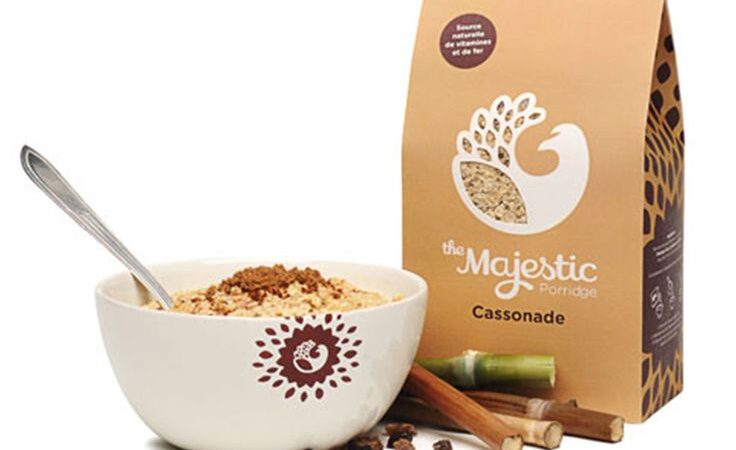Decaf Coffee and Pregnancy: What You Need to Know
Pregnancy is a time of numerous changes in a woman’s body, and every expectant mother is keen to ensure both her and her baby’s health are well-cared for. One common question among pregnant women is about their coffee consumption. While some may love the comforting taste and ritual of their daily cup of coffee, others may wonder if it’s safe to indulge during pregnancy. In particular, the concern surrounding decaf coffee pregnancy has garnered attention. Is decaf a safer alternative to regular coffee? What are the potential risks or benefits? In this article, we’ll explore the answers to these questions and help you make an informed decision about your coffee habits during pregnancy.
What Is Decaf Coffee?
Before we dive into the specifics of decaf coffee during pregnancy, let’s briefly review what decaf coffee is. Decaffeinated coffee is coffee that has had most of its caffeine content removed. Typically, decaf coffee contains about 1 to 3 milligrams of caffeine per 8-ounce cup, compared to the 95 milligrams of caffeine found in a regular cup of coffee.
The decaffeination process involves using water, solvents, or carbon dioxide to extract caffeine from coffee beans. Despite the reduced caffeine content, decaf coffee still maintains much of the original flavor, making it a popular choice for those looking to cut back on caffeine intake without giving up the taste of coffee.
The Impact of Caffeine During Pregnancy
Before we can fully address the safety of decaf coffee during pregnancy, it’s important to understand the effects of caffeine on pregnancy. Caffeine is a stimulant that crosses the placenta and can affect the developing fetus. While moderate caffeine intake is generally considered safe for most pregnant women, excessive consumption can lead to adverse effects such as:
- Increased risk of miscarriage: Some studies have suggested a link between high caffeine consumption and an increased risk of miscarriage.
- Low birth weight: High caffeine intake may be associated with an increased risk of low birth weight, which can pose health problems for the baby.
- Premature birth: In some cases, excessive caffeine intake may be linked to an increased risk of preterm birth.
- Reduced calcium absorption: Caffeine may interfere with calcium absorption, potentially impacting bone health for both the mother and baby.
Given these concerns, many women choose to limit their caffeine intake during pregnancy. This is where decaf coffee can come into play as a potential option.
Is Decaf Coffee Safe During Pregnancy?
The good news for coffee lovers is that decaf coffee is generally considered safe during pregnancy when consumed in moderation. Since decaf coffee contains much lower levels of caffeine than regular coffee, the risk of caffeine-related complications is greatly reduced. For most women, drinking one to two cups of decaf coffee per day does not pose significant risks.
However, it’s important to remember that while decaf coffee contains far less caffeine, it’s not entirely caffeine-free. The amount of caffeine in decaf coffee varies depending on factors such as the type of coffee bean and the decaffeination method used. As such, it’s still important to monitor your total caffeine intake from all sources, including tea, chocolate, and certain medications.
Benefits of Drinking Decaf Coffee During Pregnancy
There are several potential benefits of drinking decaf coffee during pregnancy:
1. Reduced Caffeine Intake
One of the most obvious advantages of decaf coffee is the reduced caffeine content. By choosing decaf, you can still enjoy the taste and ritual of coffee without consuming excessive amounts of caffeine.
2. Antioxidants and Other Nutrients
Coffee, including decaf coffee, is a rich source of antioxidants, which can help protect your cells from damage caused by free radicals. Decaf coffee still contains these beneficial compounds, offering potential health benefits, including anti-inflammatory effects. Additionally, coffee is a source of small amounts of vitamins and minerals, such as vitamin B3 (niacin) and magnesium.
3. Reduced Risk of Insomnia
Pregnancy can bring sleep disturbances, and many women find that caffeine exacerbates insomnia. By switching to decaf, you can reduce the likelihood of caffeine interfering with your sleep, especially if you drink coffee later in the day.
4. Hydration
While coffee can be mildly diuretic, decaf coffee is less likely to cause dehydration compared to regular coffee. Staying hydrated during pregnancy is important for both you and your baby’s health, so opting for decaf could be a smart choice if you enjoy your cup of coffee.
Potential Risks of Decaf Coffee During Pregnancy
Although decaf coffee is a safer option for those looking to cut back on caffeine during pregnancy, there are still a few considerations to keep in mind:
1. Chemical Residues from Decaffeination
Some decaffeination methods use solvents, such as methylene chloride or ethyl acetate, to extract caffeine from coffee beans. While these solvents are generally considered safe and are removed during processing, there’s still a small chance of chemical residues remaining in the coffee. Opting for organic decaf coffee can help reduce the risk of exposure to these chemicals.
2. Bone Health
As mentioned earlier, caffeine can interfere with calcium absorption. Though decaf coffee contains much less caffeine than regular coffee, it’s still important to maintain an adequate calcium intake during pregnancy to support bone health. Consider pairing your decaf coffee with a calcium-rich snack, such as yogurt or leafy greens.
3. Acidity
Even decaf coffee can be acidic, which may cause discomfort for some women, especially those who experience heartburn or acid reflux during pregnancy. If you’re prone to digestive issues, it’s worth experimenting with low-acid decaf coffee options or considering other caffeine-free beverages.
Tips for Drinking Decaf Coffee During Pregnancy
If you decide to include decaf coffee in your pregnancy diet, here are a few tips to ensure you’re making the healthiest choices:
- Choose high-quality decaf coffee: Look for decaf coffee that’s been decaffeinated using water or carbon dioxide methods, which are generally considered safer than chemical solvents.
- Monitor your caffeine intake: Even though decaf coffee contains less caffeine, it’s important to monitor your total caffeine consumption, including from other sources like tea and chocolate.
- Be mindful of portion sizes: While decaf coffee is safer than regular coffee, it’s still best to consume it in moderation. One or two cups per day should be safe for most pregnant women.
- Consider your overall diet: Ensure that you’re maintaining a balanced diet with sufficient nutrients, including calcium, to support both your health and your baby’s development.
Conclusion: A Safe and Satisfying Alternative
In conclusion, decaf coffee is generally a safe option for pregnant women who want to reduce their caffeine intake while still enjoying the comforting ritual of a warm cup of coffee. With its lower caffeine content, decaf coffee allows you to enjoy the taste of coffee without the same risks associated with regular coffee consumption. However, as with all dietary choices during pregnancy, it’s essential to consume decaf coffee in moderation and remain mindful of other sources of caffeine.
By making informed choices and selecting high-quality decaf coffee, you can indulge in this beloved beverage without compromising your health or your baby’s well-being. As always, consult with your healthcare provider to ensure that your pregnancy diet aligns with your personal health needs.


